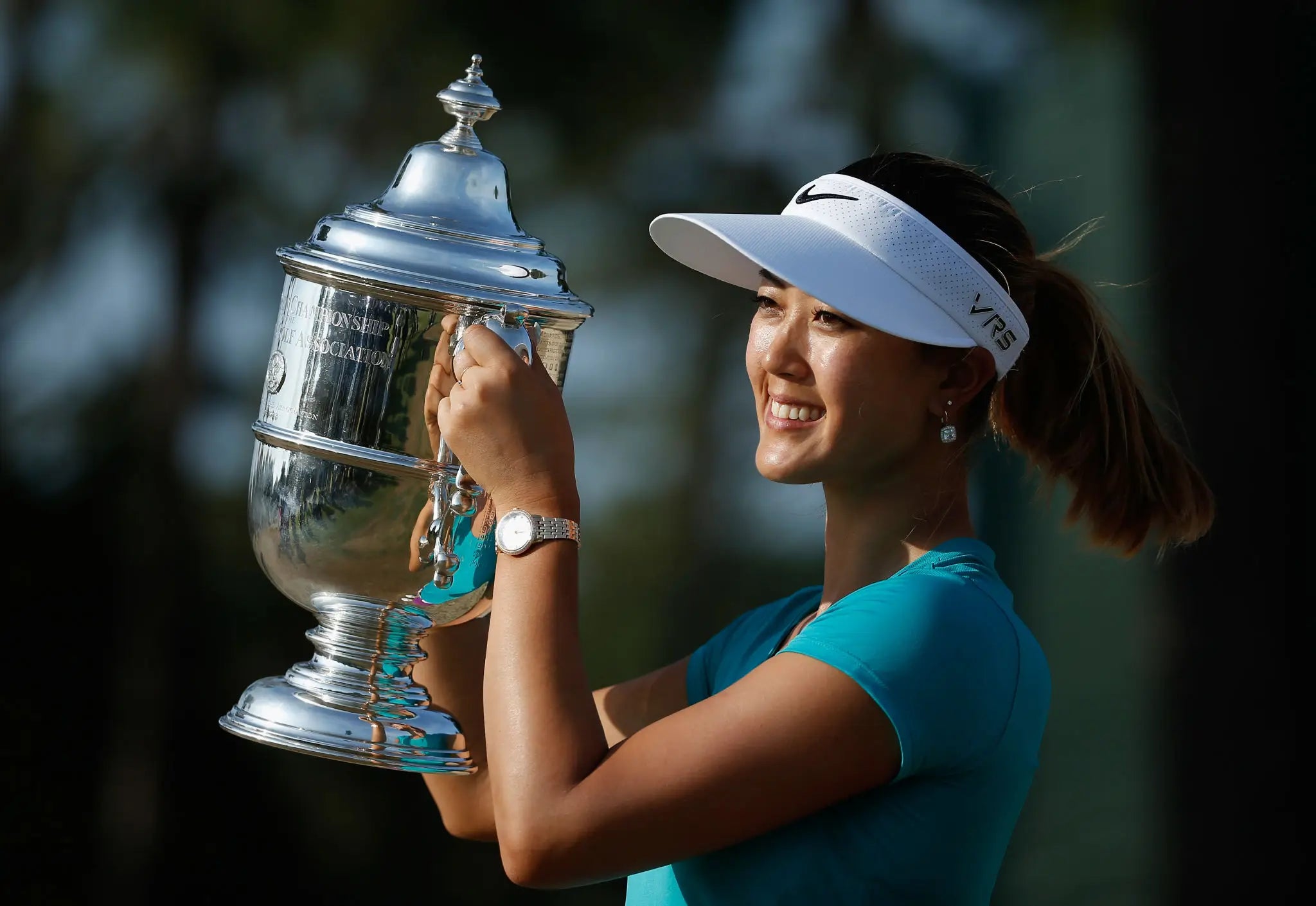Michelle Wie West Just Said it Best for All Women's Pro Sports: They Don't Need to Be Treated Like 'Charities'
 Scott Halleran. Getty Images.
Scott Halleran. Getty Images.When it comes to female athletes, few have see it all the way Michelle Wie West has.
A child prodigy who was basically raised from birth to be a tennis pro, she qualified for a USGA Amateur Championship at age 10. The youngest qualifier for an LPGA event, she turned pro at the age of 15 and was signing endorsement deals at 16. She was getting sponsors exemptions to play Men's events, but wasn't making cuts. Often missing them by huge margins, and got criticized for taking spots away from more deserving golfers. There was also an ongoing controversy about her management team firing her caddies all the time. But she did redeem herself in the eyes of many to win the Women's US Open in 2014 before chronic injuries that had her playing in constant pain ended her career at just 32 years old.
So yes, you could say she's seen it all. Even men's sports, since her husband is Golden State Warriors Director of Basketball Ops Jonnie West, the son of The Logo, Jerry West. Which qualifies her as an expert in the subject Americans have been arguing among ourselves about for a generation or more. Women's professional sports.
And she said it as well as anybody ever has. Possibly better than anyone else has:
Source - Now retired and focused on investing, Wie West, 36, is pleased with the injection of cash the LPGA has seen in recent years.
“Honestly, I think it’s kind of leveling out on our tour,” she told Front Office Sports on the latest episode of Portfolio Players. ”I think players are making multimillion dollars on the course every year. So, I think it’s leveling out in terms of endorsement deals. …
“Everyone has a common goal of wanting to increase purses,” she said. “What can we do to better our broadcasts? What can we do to better our product? I think you have to have a good collective, which I think is happening on the LPGA Tour. But yeah, it always makes for an interesting workplace when you have 150 independent contractors.”
And from this video:
“I think a lot of times women’s sports was seen as charity. I mean, I’m guilty of saying it too: ‘Oh, we’ve got to show up for women’s sports. We’ve got to support women’s sports.’ And it feels like a charity aspect.
“You’d never say that, like, ‘oh, I need to support the NFL.’ It sounds ridiculous saying it, right? …
“People shouldn’t feel bad about saying something bad about their favorite sports team, or their least favorite sports team, women’s sports team, or athlete. I like it when we have this conversation. It feels less of a charity aspect versus a real thing that people want to talk about.”

Advertisement
This is exactly the right attitude to have. At least when it comes to professional sports. College is a different matter entirely thanks to funding and Title IX. But when your whole motivation is to turn a profit and make money for all your owners and employees, your sole focus should be on putting out the best possible product. Give the people what they want. Entertain the public, and they'll turn up with their disposable income. They'll put asses in seats and eyeballs on screens. Sponsors will reach out with endorsement deals, everybody gets paid their piece of the action, and they get more as the pie grows.
It's all sounds so simple. Part Adam Smith, part Ray Kinsella.
The LPGA has been growing the pie. The WNBA has started selling out arenas thanks to compelling stars people want to see. Some sports where the women have always gotten most of the attention like Figure Skating have had a dropoff in popularity because there haven't been any stars on the level of a Kristi Yamaguchi or Michelle Kwan in a while. But in all these cases, it's not personal; only business.
More than anything, Wie West is right when she says you can't treat women's pro sport like a charity case. I mean, you can; this is still America. But you're not doing the cause you think you're championing any favors. When the US Women's National Soccer Team demands to be paid what the USNMT are getting, when the pool of money from their sport is a tiny fraction of what the men's game pulls in, they're acting exactly like they're a charity.
We all want to get paid more. But the only legitimate, responsible, sustainable way to do it is to grow your sport. Put out the best product. With the best possible athletes. Present it well. Package it. Market it. Make consumers want it. Reap the financial benefits.
And part of that means being able to deal with criticism. Again, like Wie West says. To be taken seriously as a professional anything, you have to willing to deal with the heat when you screw up. People who buy tickets get to let you hear it. You've got to take the bad with the good. To embrace it as part of the cost of getting paid. To look at it the way Reggie Jackson did before you were born: "They don't boo nobodies." You can't say that every time you get heckled it's misogyny. But instead, accept that it means, to quote her, you're part of "a real thing that people want to talk about.”
Michelle Wie West ought to know. And she does. If everyone in women's pro sports had her attitude, they wouldn't ever act like their league is a charity case ever again.